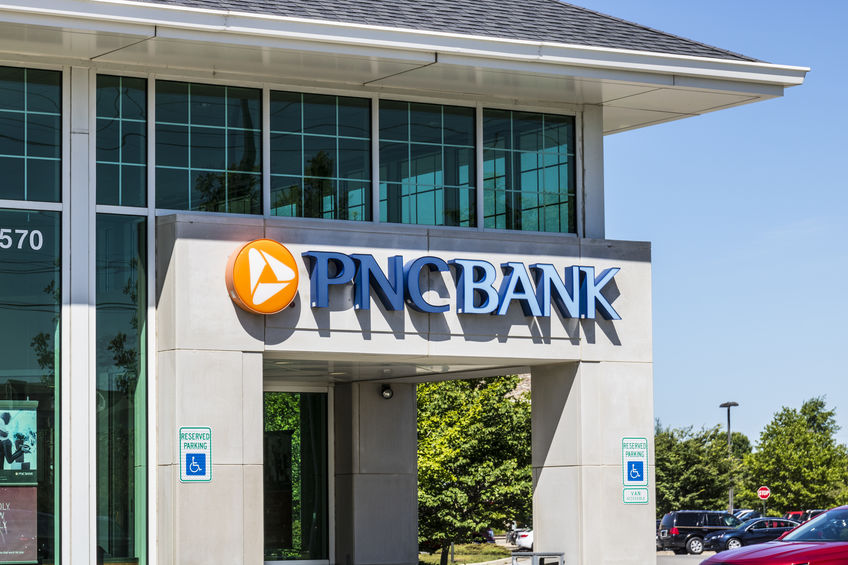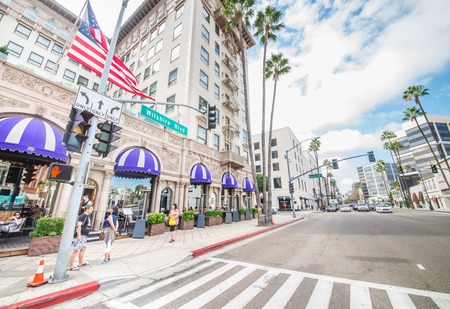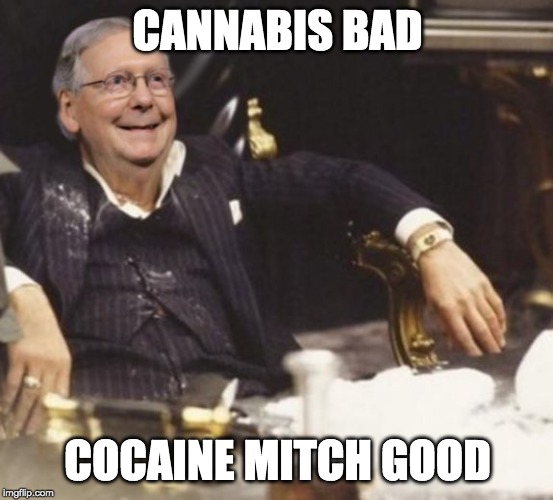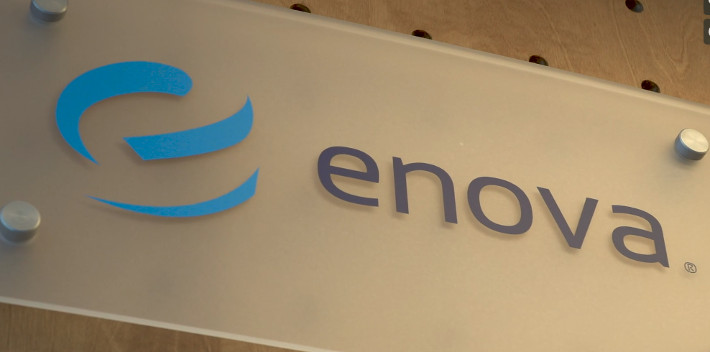Brendan Garrett was a Reporter at deBanked. Articles by Brendan Garrett
Earnin, Say What’s Your Price? Nas-backed Earnin Comes Under Investigation
September 17, 2019 Earnin, the self-proclaimed alternative to payday loans, is part of a new online lending category that is under investigation in eleven states and Puerto Rico for its similarities to payday loans. With such loans being banned in sixteen states, the app-based personal loans company has drawn the attention of various regulators after it was suggested that its lending model potentially shares a similar APR with payday loans.
Earnin, the self-proclaimed alternative to payday loans, is part of a new online lending category that is under investigation in eleven states and Puerto Rico for its similarities to payday loans. With such loans being banned in sixteen states, the app-based personal loans company has drawn the attention of various regulators after it was suggested that its lending model potentially shares a similar APR with payday loans.
Backed by rapper Nas (only as of June and on undisclosed terms), the company came under fire after it was reported that in a meeting its founder and CEO, Ram Palaniappan, discussed hiring a private investigator to look into the past of a New York Post journalist that was writing about them.
Operating under a ‘tipping’ system, Earnin profits from the loans it provides by suggesting that customers give a voluntary tip when repaying their loans. The default amount is $9 per $100 taken, but people have paid up to $14 per $100, this being the limit one can tip.
According to the New York Post, these tips can lead to APRs of over 400% for an individual advance. Uncertainty looms over Earnin’s model as the phrasing of ‘tipping’ confuses whether or not this can be classified as a loan fee. Say what’s your price? Borrowers may not be aware that their tip could put the loan’s cost on par with costly payday loans.
Earnin relies on analytics gathered from customers’ phones, with the company knowing how much users are paid per hour as well as knowing how long they were at work via their location, Earnin can accurately predict incoming wages.
In a company statement, Earnin said that its system “is a brand new model, so we expect, and welcome questions from regulators like the New York Department of Financial Services.” Since this announcement, Earnin no longer suggests a tip to users in New York and Nas has yet to comment on the situation.
PNC Bank Launches Fintech Startup numo
September 3, 2019 Last week, PNC Bank announced its latest venture, numo, which aims to function as an internal startup, developing apps and other services to expand PNC’s operations.
Last week, PNC Bank announced its latest venture, numo, which aims to function as an internal startup, developing apps and other services to expand PNC’s operations.
The first such app is indi, a bank account for gig workers that is exclusive to mobile phones. Offering customers tax calculators, tax savings goals, and dynamics adjustments that react to how much they’ve saved, PNC is joining the list of financial institutions which are doubling down on banking apps. The numo accounts are FDIC-insured, are held at PNC, and include a Visa prepaid debit card.
Speaking on the benefits of indi, numo CEO David Passavant said, “How do you estimate your tax liability when you don’t have an employer doing it for you? We built a system with intelligence to estimate what you should set aside for taxes.”
Beyond indi, numo has two other projects in the pipeline. One of these is unknown as of yet, but the next to be launched will be a service for companies that run portfolios of retail properties.
Not the only announcement to come from PNC last week, the bank also revealed its partnership with the RippleNet blockchain network. Joining together to offer swift cross-border payments for PNC’s commercial clients, the news comes almost a year after the bank stated that it planned to partner with RippleNet in September 2018.
“The speed of doing business continues to accelerate,” explained PNC Treasury Management Executive Vice President and Head of Product Chris Ward in 2018. “And the efficiencies of RTP [real-time payments] allow our clients to not only keep pace, but stay ahead.”
Outside the Box: Idea Financial’s Unusual Path to Alternative Finance
August 28, 2019
How many lawyers does it take to start up an alternative finance company? Two, according to Idea Financial’s Co-founders, Justin Leto and Larry Bassuk.
Idea, a Miami-based company which offers lines of credit to SMB owners, is the product of Leto and Bassuk’s partnership over the course of years, the latter told deBanked. “We took a leap of faith and left our practices and we began developing this business out of the conference room of our own firm.” But before that, the pair worked together as both lawyers and entrepreneurs.
Beginning in 2011, they met when Leto was already running his own practice and Bassuk was working as an associate for a different firm on the same floor. What started as a chance meeting developed into talks of what’s missing from their industry, which ultimately led to their early ventures together: their own legal firm, Leto | Bassuk, and Level Insurance.
While the former of these is no longer operating, due to their focus shifting to Idea, Level is still providing services to those looking for a niche form of insurance. Established in 2016, the company offers Litigation Cost Protection which covers those lawyers who work on contingency, this being the agreement of them being paid a percentage of the assets they recover for the client, thus earning nothing if the client loses.
Born from Leto and Bassuk’s own experiences as attorneys, Level Insurance provided that initial entrepreneurial step outside of a law firm. And while it afforded the comfort of overlapping with the legal industry, their decision to go into alternative finance brought with it a new marketplace as well as new challenges.
Although it was founded in March 2017, Idea Financial’s first year in business was largely spent working out of Leto | Bassuk’s conference room, figuring out strategies, technology, and credit models; as well as making key hires and developing their product. In fact, it wasn’t until January of 2018 that Idea made their first loan. Initially backed with $20 million by Warsaw-based Idea Bank, which specializes in servicing small businesses, Idea Financial has since secured another $70 million from the fintech bank, Cross River Bank, and has funded $50 million to nearly six hundred businesses.
Now at 35 employees and with a new office beyond the walls of the old conference room, Leto asserts business is going well despite the odds having been stacked against them. “Some would have called [Idea Bank] crazy because they gave two people who were from outside the space this kind of money to build a business and lend money without any strict covenants. So, Larry and I were left to make our own rules.”
And looking forward, Bassuk is confident of their future, lauding much of the company’s strength to the diversity of their workforce, with recruits from Montenegro, Russia, Colombia, and Venezuela, and their unique backgrounds. “We’re all about recruiting top talent, all about diversity of thought.”
“We’re not from the finance space, we’re not from the alternative lending space either, we came at this opportunity with a different approach.”
Apple Card Partnership Sees Goldman Sachs Lending to Subprime Borrowers
August 25, 2019 Apple Card launched this month, and with it have come some complaints over the unforeseen damage that wallets can do as well as an official guide from Apple on how to tend to and clean your new credit card. But aside from aesthetic and hygienic concerns, the card’s release to the wider public has raised eyebrows with news of subprime borrowers being approved.
Apple Card launched this month, and with it have come some complaints over the unforeseen damage that wallets can do as well as an official guide from Apple on how to tend to and clean your new credit card. But aside from aesthetic and hygienic concerns, the card’s release to the wider public has raised eyebrows with news of subprime borrowers being approved.
Forged from a partnership between Apple and Goldman Sachs, a bank known for dealing with corporations and the rich, the move seems out of character for the 150-year-old institution.
Rolled out initially to Apple employees as a test, rumors began to circulate of early adopters expressing surprise at being approved despite having FICO scores in the middling 600s. Then, upon Apple Card’s wider release, Ed Oswald came forward and spoke to CNBC about receiving his card, along with a credit limit of $750 and an interest rate of 23.99%, despite having a credit score of around 620.
But this is not the bank’s first foray into FICO’s less than 700. Since its launch, Goldman’s Marcus has issued $4.75 billion in personal loans, 13% of these going to borrowers with a FICO of 660 and under.
This 13% and the partnership with Apple are indicative of David Solomon’s tenure as CEO of Goldman Sachs, who has sought to expand into consumer finance following years of declining trade revenues.
And while this contrasts the bank’s history, the push for more access to credit is aligned with Apple’s values. In fact, in the 1990s, when the tech company was in talks with Capital One over a potential card partnership, Steve Jobs “had an aversion” to rejecting any customers who wanted to sign up. Such yearning for openness and ease of access has reportedly scared off other banks. According to CNBC, Citigroup was in advanced talks with Apple prior to Goldman Sachs’s confirmation, but pulled out of the deal due to concerns over the profitability of the partnership. Similarly, JPMorgan Chase, Barclays, and Synchrony all allegedly bid on the deal.
But what does such access mean? Well opening up credit to those with a less-than-proven track record increases the risk of losses due to unpaid loans. The speed with which funds are made available, the application and approval process takes two minutes, means that Apple Card could rival payday loans and alternative finance for those customers looking for more modest funding. And as well, the commodification and attention paid to the appearance of the card by Apple has led to it being viewed as the latest gadget from the company rather than a tool to use when financially necessary, as pointed out by Macworld, raising questions over how credit cards should be marketed.
On the topic of access, Ian Kar, the author of the Fintech Today newsletter said that “Apple is only making one card, so they have to target everyone … It’s not like they’re Chase with multiple cards like Sapphire Reserve to target a higher demographic and other cards for lower segments.”
This singular approach to credit joins Apple’s growing collection of services. Likely being pushed to account for the falling sales of the iPhone, Apple Card is the latest in a line of launches that includes Apple News+, Apple TV+, Apple Pay, and Apple Arcade.
This year, iPhone sales saw a drop of 12%, making up 48% of total Apple sales. While Apple services rose by 13% from 2018 to become the second largest segment of the company’s sales portfolio, being 21%.
When discussing Apple Card and its role in the bank’s ecosystem in an internal Goldman Sachs memo, Solomon, hinting at further partnerships, said “Apple Card is big, but it’s also a beginning.”
Jamie Dimon Among 181 CEOs Pledging to Look Beyond Investors
August 22, 2019 This week, JPMorgan Chase CEO Jamie Dimon along with 180 other CEOs published a statement committing themselves to rethinking corporate priorities and their responsibilities as leaders of business.
This week, JPMorgan Chase CEO Jamie Dimon along with 180 other CEOs published a statement committing themselves to rethinking corporate priorities and their responsibilities as leaders of business.
The majority of the Business Roundtable (BRT), a corporate lobbying group comprised of 200 CEOs that once was described as Obama’s “closest ally in the business community,” signed off on the statement, which outlines a number of vague commitments. Included are goals to deliver “value to our customers” by furthering “the tradition of American companies leading the way in meeting or exceeding customer expectations”; to deal “fairly and ethically with our suppliers”; to support “the communities in which we work” through “embracing sustainable practices across our businesses”; to compensate “[employees] fairly and [provide] important benefits”; and to generate “long-term value for shareholders, who provide the capital that allows companies to invest, grow and innovate.”
Such promises are in opposition to shareholder primacy, the belief that the purpose of a business is to create profit for stakeholders and the leading corporate philosophy in American capitalism, and are in in direct contradiction to the BRT’s 1997 statement which praised the shareholder-centric approach.
“We looked at this thing that was written in 1997 and we didn’t agree with it,” said Dimon following the statement’s release. “It didn’t fairly describe what we think our jobs are.”
Such a view is reminiscent of Dimon’s 2019 letter to JPMorgan Chase shareholders, which opened with “The American Dream is alive – but fraying for many,” and closed with “CEOs: Your country needs you!” Just as it is linked to fellow BRT member Larry Fink’s similar letter which discusses the growing trend of CEOs having political and social responsibilities. And topping these associations off is Amazon’s Jeff Bezos, another signatory of the statement, who in 2018 took an unexpectedly patriotic turn when he criticized other firms, such as Google, that pulled out of military contracts, saying, “If big tech companies are going to turn their back on the US Department of Defense, this country is going to be in trouble.”
More and more CEOs are stepping up to explain the moral vision of their companies’. Harvard Business School Historian Nancy Koehn says that this specific case of such espousing is a “response to something in the zeitgeist. They perceive that business-as-usual is no longer acceptable.” The reasons for such a change in approach could be changing trends amongst younger workers, such as employees’ demand that their employer believe in something beyond profit, the increasing number of consumers who factor a business’s social purpose into their purchasing decisions, and the constant threat of social media backlash.
CEO of Johnson & Johnson Alex Gorsky, who drafted the language of the statement, echoed this concept of CEO’s having a social vision when he noted that “there were times when I felt like Thomas Jefferson.” Standing in for the Founding Fathers in Gorsky’s vision are Pepsi, Walmart, Apple, and General Motors.
Reactions to the statement have been skeptical, with many critics calling into question whether any action will come from such words. “The bottom line is, I don’t think much is going to change,” commented Dick Bove, a Wall Street analyst. While Walter Olson, a Senior Fellow at the Cato Institute, said that “It’s not really clear whether they’re intending to replace any part of the system or do the same things as before, but … smile more.”
Bernie Sanders was more pointed in his reaction to the statement. “I don’t believe what they’re saying for a moment. If they were sincere, they would talk about raising the minimum wage in this country to a living wage, the need for the rich and powerful to pay their fair share of taxes.” Fellow primary candidate Elizabeth Warren also weighed in, saying that it was “a welcome change,” but “without real action, it’s meaningless … These big corporations can start following through on their words by paying workers more instead of spending billions on buybacks.”
The Council of Institutional Investors (CII), a group that promotes the interests of investors and shareholders, responded with concern, saying that “The statement undercuts notions of managerial accountability to shareholders.” “Accountability to everyone means accountability to no one … It is government, not companies, that should shoulder the responsibility of defining and addressing societal objectives with limited or no connection to long-term shareholder value.”
Calls For Oversight As SBA Loans Go To Wall Street, Investor Funds, And High End Businesses In Beverly Hills
August 20, 2019 In a report released this month by OpenTheBooks.com, a non-partisan non-profit organization, outlined how and who the SBA had guaranteed loans for in the years between 2014 and 2018. Covering various forms of funding, ranging from 7(a)s to 504s to surety bond guarantees, the report details a number of different types of businesses as well as locations that the SBA guaranteed loans for across all 50 states.
In a report released this month by OpenTheBooks.com, a non-partisan non-profit organization, outlined how and who the SBA had guaranteed loans for in the years between 2014 and 2018. Covering various forms of funding, ranging from 7(a)s to 504s to surety bond guarantees, the report details a number of different types of businesses as well as locations that the SBA guaranteed loans for across all 50 states.
Running through the document is a criticism of the channels through which the loans are processed, as questions are raised over whether those receiving financing actually require the funds. Largely being businesses that provide luxury goods and services, the report puts forth five questions that “the public should be asking”: how were these industries and subsidies chosen? Why should non-upper-class citizens subsidize these businesses? Why is the SBA lending so much via +$1 million loans during a period of unprecedented economic prosperity? Why is the SBA lending to Wall Street bankers? And is the SBA qualified to make determinations of which business to favor over another when approving loans?
Such questions stem from the analysis that follows them in the report. Herein, it is revealed that the SBA obligated and awarded $168.9 billion in loans and insurance guarantees, and that small businesses in Beverly Hills, specifically, received $117 million of this; while $12.2 billion flowed to Wall Street’s venture capital firms, mezzanine finance firms, private investor funds, and investment pools; and $280 million went to private country clubs. SBA reports indicate that $1 of every $14 loaned goes to just 300 companies out of the total 543,081 recipients of SBA funding, with this group, dubbed ‘The Fortunate 300,’ receiving $12 billion. As well as these figures, the report reveals that the SBA charged off $16.5 billion from 2010 to 2018, and that there has been a 52% increase in lending between 2014 and 2018, with a 36% increase in loans of $1 million or more, specifically.
 Of particular note are the sections devoted to 7(a) and 504 loans, these being the most common types of financing discussed in the document, with there being 303,363 recipients of the former and 29,210 of the latter. Outlined here are the top loan recipients of each type as well as the amounts received.
Of particular note are the sections devoted to 7(a) and 504 loans, these being the most common types of financing discussed in the document, with there being 303,363 recipients of the former and 29,210 of the latter. Outlined here are the top loan recipients of each type as well as the amounts received.
Displaying a wide-ranging portfolio, the top 50 7(a) loan recipients include a nationally recognized childcare program, a family owned producer and exporter of grain, and an aircraft spare parts distribution and repair service; with these receiving over $44 million, $25 million, and $19 million, respectively. Singled out in this section are plastic surgery clinics. With 115 individual clinics receiving $50.9 million between 2010 and 2018, the report draws attention to why such upper class and profitable businesses are requiring loans in the millions.
Similarly, the list of top recipients of 504 loans also feature a range of funding up to $45 million. What differed is that the top 50 504 recipients list is comprised of much more businesses in the hospitality sector, with Holiday Inn and Home2 Suites taking first and second place. However, the report again questions the allocation of funding to such businesses that are nationally successful, note that the purpose of 504s is to expand one’s company.
As well as these questions over loan allocations, the report serves to highlight another development within funding, this being the surge in disaster lending between 2014 and 2018 – a shift that perhaps reflects the increase in destructive weather that climate change has brought. According to the SBA, it has increased its approval of disaster assistance loans by 1,633%, with the number of loans jumping from 6,244 ($426 million) to 140,249 ($7.3 billion) in five years. Interestingly, the average loan value dropped from $68,326 to $52,726 in these years.
Turning a New Leaf: Banking Committee Chairman Says It’s High Time for New Cannabis Company Regulations
August 19, 2019 Recent years have seen a surge of popularity for the legalization of cannabis movement across the United States. Beginning with the normalization and legalization of the herb for medicinal use, and then the outright legalization of it in California, Colorado, Oregon, Nevada, Alaska, Michigan, Vermont, Massachusetts, Maine, Washington, and D.C., most states now support legalization in some form (ie. medicinal use being allowed, or at very least access to CBD products) with the exception of three.
Recent years have seen a surge of popularity for the legalization of cannabis movement across the United States. Beginning with the normalization and legalization of the herb for medicinal use, and then the outright legalization of it in California, Colorado, Oregon, Nevada, Alaska, Michigan, Vermont, Massachusetts, Maine, Washington, and D.C., most states now support legalization in some form (ie. medicinal use being allowed, or at very least access to CBD products) with the exception of three.
According to Kris Krane, Co-founder and President of 4Front, a leading multi-state cannabis company, and contributor to Forbes, support for legalization has steadily increased 1-2% each year since the 1970s, with the recent state-wide legalization legislation bumping those figures up. But while support amongst the populace as well as within certain corners of the government has grown, infrastructural support that is regulated by politicians has lagged.
Specifically, since their legalization, cannabis companies have been unable to open bank accounts due to strict federal restrictions. As a result, cannabis companies, the majority of which being small businesses, have a harder time paying employees, vendors, and taxes; find it tough to acquire start-up capital; struggle to finance themselves in the face of unforeseen expenses; and are subject to the increased security risks that come with holding onto high quantities of cash. As well as these repercussions, such federal hurdles lead to many cannabis companies receiving finance via equity investments, to which Krane says, “the owners of cannabis businesses own far less of their companies than they would in any other industry.”
Viewed alongside the growing attitude to “legalize it,” such financial handicapping paints a picture of the industry that is all smoke and no fire. Krane described the situation as “one of the greatest challenges for cannabis businesses today,” but the tide may be turning.
 Idaho Senator Mike Crapo (R), who is the Chairman of the Senate Banking Committee and who has historically been an ardent opponent of legalization, appears to have changed his tune on the matter. When asked if legislation would be required to end the barriers faced by cannabis businesses, Crapo responded “I think so, yeah.”
Idaho Senator Mike Crapo (R), who is the Chairman of the Senate Banking Committee and who has historically been an ardent opponent of legalization, appears to have changed his tune on the matter. When asked if legislation would be required to end the barriers faced by cannabis businesses, Crapo responded “I think so, yeah.”
The comment came after Crapo surprised his peers by holding a committee hearing on allowing cannabis businesses to access banks. Which seemed in opposition to his initial anti-legalization view as well as starkly unaligned with his state’s stance, Idaho being one of the three aforementioned states in which all cannabis-related products are outlawed. Nevertheless, Crapo continued on in the opposite direction of his previous convictions after the hearing, saying, “I think all the issues got well vetted. We now need to, I think, move forward and see if there’s some way we can draft legislation that will deal with the issue.”
Conveniently, such legislation is in the works. The SAFE Banking Act of 2019, put forward by Congressman Ed Perlmutter (D), seeks to solve the issue by lifting the red tape surrounding cannabis companies’ lack of access to banking. Support for the bill is growing, and as proven by Crapo, further support could come from unlikely places.
Fellow Republican, Senator Cory Gardner, explained that “merely having the hearing on marijuana banking issues was a ‘historic moment in the Senate’ … It shows that this isn’t just a regional issue, but a national issue that needs to be addressed … There was some criticism that the Republican attendance wasn’t there, but if they wanted to blow it up they would’ve been there. So I look at that as sort of an acknowledgment that this is now just a status quo issue and not something that they’re going to try and interfere with.”
While on the other side of the aisle, Senator Catherine Cortez Masto (D) said that she “would like to see it as a positive step forward. I support doing something in this country for these states that have legitimized marijuana businesses … I have always been concerned about potential money laundering or crimes that are sort of around these all-cash businesses. By having a financial system, it helps.”
 Still, despite there being bipartisan support for the SAFE Banking Act the question of Mitch McConnell looms. Being the Senate Majority Leader, McConnell has influence over which legislation reaches the Senate floor for debate. And while McConnell may have borne the title of “Cocaine Mitch” with pride before, the narcotics-tinged buck stops there as the Kentuckian has gone on record saying he would not support the legalization of cannabis.
Still, despite there being bipartisan support for the SAFE Banking Act the question of Mitch McConnell looms. Being the Senate Majority Leader, McConnell has influence over which legislation reaches the Senate floor for debate. And while McConnell may have borne the title of “Cocaine Mitch” with pride before, the narcotics-tinged buck stops there as the Kentuckian has gone on record saying he would not support the legalization of cannabis.
Interestingly, McConnell is a proponent for the legalization of hemp. Saying that hemp is “a completely different plant than its illicit cousin,” McConnell’s view is born from his state’s agriculture-intense economy. “Everything from clothing to auto parts” can be made from hemp – a sentiment once isolated to communes, is now being publicly uttered by one of the most conservative contemporary Republicans.
Nevertheless, Kris Krane remains an optimist about future legislation as “there seems to be a growing consensus that cannabis banking reform is necessary,” likely due to worries over security. Crapo’s change of mind “represents a growing awareness among federal legislators that blocking cannabis businesses from accessing banking services is a security concern, and even members who may not support overall cannabis reform are increasingly willing to help resolve the banking issue. It is looking more and more possible that the Safe Banking Act [sic] could become law in the next year.”
Enova’s Small Business Division Garner’s Limelight in Q2
August 16, 2019 Late last month, Enova released its second quarter report for 2019. Generally bearing positive news, the report asserts that the company is in a good position due to increasing demand, growth in various areas, and reductions in financing costs.
Late last month, Enova released its second quarter report for 2019. Generally bearing positive news, the report asserts that the company is in a good position due to increasing demand, growth in various areas, and reductions in financing costs.
Total revenue is up from Q2 2018, rising 13% from $253 million to $286 million, just as net income has risen from $18 million to $25 million.
“We are pleased to report another quarter of solid financial results that exceeded our expectations on both the top and bottom line,” said Enova CEO David Fisher in the earnings call. “Our strong financial performance was driven by solid demand, stable credit, and efficient marketing spend. We continue to demonstrate our ability to produce sustainable and profitable growth and our second quarter results further validate this balanced approach.”
Speaking more specifically about which divisions of Enova have excelled, Fisher highlighted the small business sector, which is composed of Headway Capital and The Business Backer. “NetCredit and our small business financing products were the primary growth drivers during Q2, with domestic revenue up 19% year over year … Our products are clearly gaining traction with customers, resulting in originations increasing 140% year over year, and small business now represents 12% of our book at the end of Q2.”
Jim Granat, Enova’s Head of Small Business Financing, chalked such gains up to “having a great team, a good strategy, and a great company behind us that has the ability to invest in the analytics, tech, and people.” The strategy he speaks of is titled ‘Faster and Easier,’ a modus operandi began by him after his arrival to the company in 2018. It is data-driven and involves incorporating certain individual operations of Headway and Business Backer, and streamlining these processes so that the brands overlap for particular actions. Implemented with the belief that “doing it internally would lead to speed and ease externally,” ‘Faster and Easier’ appears to be working, if one takes Fisher’s comments and the report as affirmation.
“We’ve been working really hard and hopefully the results of that show in the fruits of these efforts,” said Granat. “We are just in the beginning of what we can accomplish, these projects take a while and we are incredibly excited about the second half of 2019, let alone 2020 and beyond.”






























